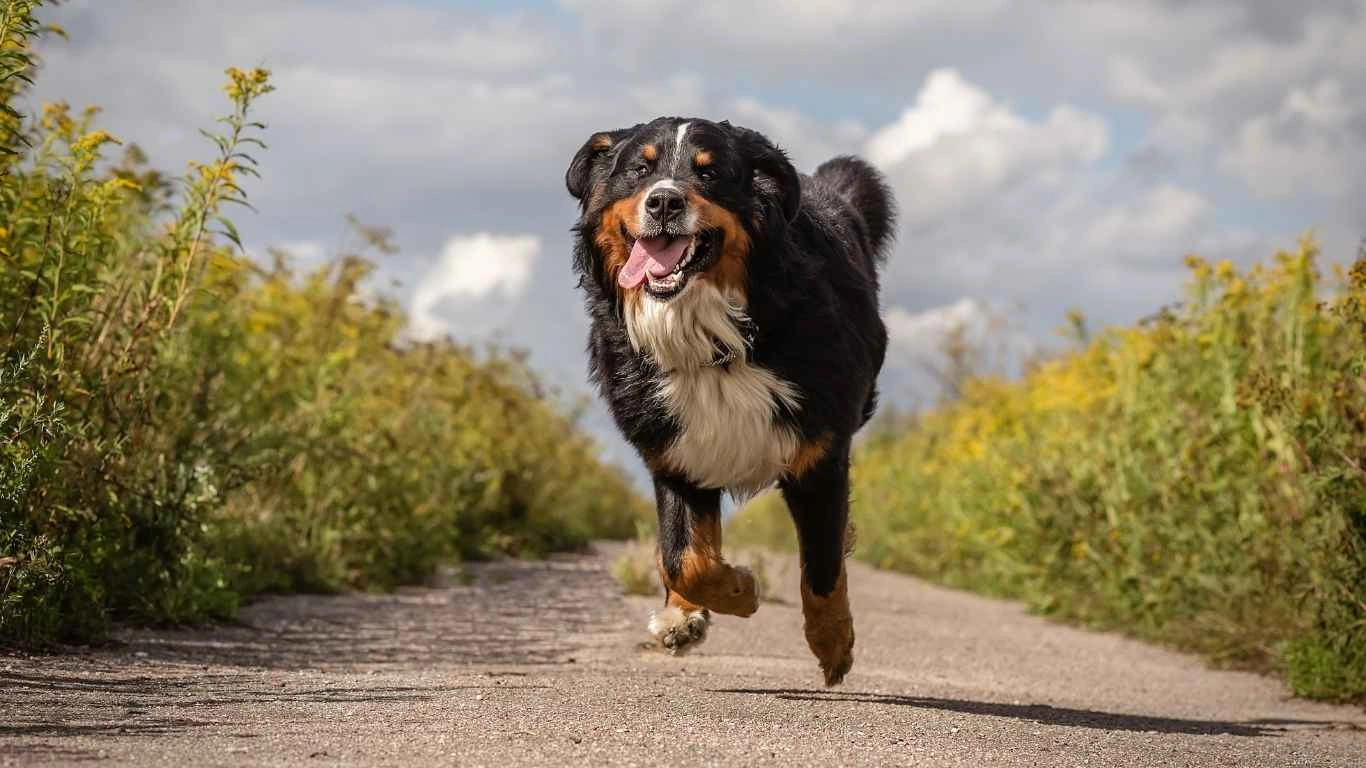The Ultimate Guide to the Best Diet for Active Herding Dogs for Peak Health and Performance
If you’re the proud owner of an active herding dog, you already know how important it is to keep them healthy, energetic, and strong. But what exactly is the best diet for active herding dogs? Well, it’s not just about picking any dog food off the shelf. These dogs are high-energy, working animals that require a specialized diet to fuel their intense physical activities, sharp mental focus, and overall well-being. Having spent years working with pets in shelters and clinics, I’ve seen firsthand how nutrition can significantly impact a herding dog’s health, behavior, and performance. In this article, we’ll dive deep into what makes the best diet for active herding dogs, focusing on their specific needs and how you can tailor their meals to keep them at their peak performance. Let’s explore the factors you should consider and how to choose the right food for your hardworking pup.
The Unique Needs of Active Herding Dogs

Active herding dogs, like Border Collies, Australian Shepherds, and Belgian Malinois, are bred to work long hours in challenging environments. Whether it’s herding livestock, chasing down prey, or running alongside their human partners in outdoor activities, these dogs have an immense amount of stamina and energy. As a result, their dietary needs differ from those of other less active breeds.
Why Energy and Protein Matter
For a dog with the high activity level of a herding breed, the best diet needs to emphasize two main factors: protein and energy. These dogs need a diet that supports their muscle mass and energy output. Protein is essential for muscle repair, maintenance, and growth, while a balanced energy intake ensures that your herding dog can keep going throughout the day without burning out.
- Protein: Look for dog food with high-quality animal-based protein sources like chicken, beef, lamb, or fish. These provide the amino acids that active dogs need for muscle recovery.
- Energy: Active herding dogs burn through a lot of calories, so foods rich in fats and carbohydrates are crucial. Look for sources like chicken fat, flaxseed, or sweet potatoes that can provide sustained energy.
Essential Nutrients for Herding Dogs
Aside from protein and energy, it’s also important to consider other nutrients that will support their overall health and performance. Herding dogs are prone to certain health conditions that can be mitigated by providing a well-rounded diet.
- Omega-3 and Omega-6 Fatty Acids: These essential fats play a critical role in maintaining healthy skin and coat, reducing inflammation, and supporting cognitive function. Fish oils, flaxseed, and chia seeds are great sources.
- Joint Health: Active herding dogs are often on the move, running and jumping. Ingredients like glucosamine and chondroitin support joint health and mobility, which is crucial for preventing injuries as they age.
- Vitamins and Minerals: A good mix of vitamins, including vitamin E, vitamin C, and B-vitamins, along with minerals like calcium and phosphorus, will ensure their bones and muscles stay strong.
How to Choose the Best Dog Food for Active Herding Dogs

When shopping for dog food, it can be overwhelming to sift through the endless options. After all, not all dog food is created equal, and what works for one dog may not work for another. Here are some tips on how to pick the best dog food for your active herding dog.
Look for High-Quality Protein Sources
The first thing you should check on the label is the protein content. Herding dogs require protein to maintain their lean muscle mass. High-quality protein should come from named animal sources like chicken, turkey, beef, lamb, or fish. Be cautious of dog food with vague meat sources like “meat meal” or “poultry by-product” as these can often be lower quality and less nutritious.
Check the Caloric Density
Because active herding dogs burn so many calories, it’s important to choose food that’s calorie-dense but not too high in fillers. Fillers like corn, wheat, or soy might contribute to the overall volume of the food, but they offer minimal nutritional value. Instead, opt for foods with whole grains like brown rice or sweet potatoes, which provide long-lasting energy.
Consider the Age and Activity Level
While active adult dogs need higher amounts of protein and calories, puppies, seniors, and less active dogs will have different nutritional needs. Make sure to choose a formula that’s designed for your dog’s specific stage of life and energy output. For instance, a growing herding puppy will need more protein and fat to fuel their development, while a senior dog may benefit from a diet that includes joint support and easier-to-digest ingredients.
Understanding Dog Food Labels

Reading dog food labels is one of the most important steps in ensuring your herding dog gets the proper nutrition. However, it can also be one of the most confusing aspects of dog food shopping. Here are a few tips to help you navigate the label:
- Ingredients List: The first few ingredients listed are the most important. Look for named proteins (chicken, beef, etc.) and high-quality grains.
- Guaranteed Analysis: This tells you the percentage of protein, fat, fiber, and moisture in the food. For herding dogs, you’ll want protein to make up at least 20-30% of the formula, with fat around 8-15%.
- AAFCO Statement: Check for a statement that confirms the food meets the nutritional levels set by the Association of American Feed Control Officials (AAFCO). This ensures the food is complete and balanced.
Now that you have a basic understanding of what goes into the best diet for active herding dogs, you’re on your way to making more informed choices for your furry friend. In the next section, we’ll dive into specific food brands and popular options for active herding dogs.
Top Dog Food Brands for Active Herding Dogs

Now that we’ve discussed the essential components of an active herding dog’s diet, it’s time to explore some of the best dog food brands on the market. Choosing the right brand can be daunting with so many options available, but I’ve worked with many owners of herding dogs, and I’ve found a few brands that consistently stand out. These brands focus on quality ingredients, high protein content, and formulas that support the unique needs of herding dogs. So, let’s break it down and highlight some top contenders that are worth considering for your energetic pup.
Orijen
If you’re looking for top-tier quality, Orijen is often considered one of the best in the industry. Known for its high-protein, biologically appropriate formulas, Orijen uses fresh, regional ingredients, including free-run poultry, wild-caught fish, and ranch-raised lamb. This brand ensures that your herding dog gets the right balance of protein, fat, and nutrients to support their activity levels.
- High-Protein Formula: Orijen offers up to 85% animal ingredients, providing your dog with the protein they need for muscle maintenance and energy.
- Variety of Protein Sources: Multiple animal-based protein sources like chicken, turkey, and fish help diversify the nutrients your dog gets.
- Grain-Free: If your dog has sensitivities, Orijen’s grain-free options are a great choice for active dogs that need high-quality, easily digestible food.
Blue Buffalo Wilderness
Blue Buffalo is another highly reputable brand that’s been around for years. Their Wilderness line is specifically designed for high-energy dogs like herding breeds. Packed with high-quality protein and a mix of healthy fats, it’s ideal for active dogs that need that extra fuel for their daily adventures.
- Natural Ingredients: Blue Buffalo’s Wilderness food uses chicken as its primary protein source, and it’s packed with other beneficial nutrients like sweet potatoes, blueberries, and flaxseeds.
- Omega Fatty Acids: Their formulas are rich in omega fatty acids, which support coat health and reduce inflammation—key for active dogs constantly on the move.
- LifeSource Bits: These unique kibble pieces contain a precise blend of vitamins, minerals, and antioxidants to promote your dog’s immune health.
Hill’s Science Diet
When it comes to scientifically backed nutrition, Hill’s Science Diet is a favorite. While it’s often recommended by veterinarians, Hill’s also offers excellent formulas for active dogs. Their formulas are specifically designed to support muscle health and provide balanced energy for dogs that are always on the go.
- Targeted Nutrition: Hill’s Science Diet formulas are designed with specific life stages and activity levels in mind, making them perfect for active herding dogs.
- Highly Digestible Ingredients: Hill’s uses high-quality proteins and fiber to ensure that your dog absorbs all the nutrients they need while also preventing digestive issues.
- Joint Health Support: Certain Hill’s formulas also include ingredients like glucosamine and chondroitin to support your dog’s joints, which is essential for active herding dogs prone to wear and tear.
Homemade vs. Commercial Dog Food for Herding Dogs

As a pet care specialist, I’ve had many conversations with dog owners about the pros and cons of homemade versus commercial dog food. Both options have their benefits and challenges, so it really depends on your preferences, budget, and your dog’s specific needs. Let’s take a closer look at both sides.
Homemade Dog Food
Homemade dog food gives you full control over what your dog eats, which can be beneficial if your herding dog has specific dietary needs or sensitivities. However, it’s essential to get the balance right, as herding dogs need a variety of nutrients to maintain their high energy levels and support their active lifestyle.
- Benefits: Homemade food can be free of fillers, preservatives, and artificial additives that are often found in commercial food. You can ensure your dog gets fresh, whole ingredients like lean meats, vegetables, and grains.
- Customization: If your herding dog has food allergies or intolerances, homemade food gives you the flexibility to create meals tailored specifically to their needs.
- Cost and Time: On the downside, making homemade dog food can be time-consuming and expensive. You’ll need to research balanced recipes and ensure that your dog is getting the right proportion of protein, carbs, fats, and micronutrients.
Commercial Dog Food
Commercial dog food, on the other hand, offers convenience and consistency. Many high-quality brands like Orijen, Blue Buffalo, and Hill’s Science Diet create formulas specifically designed for active dogs, so you don’t have to worry about mixing ingredients or worrying about whether your dog is getting enough nutrition.
- Convenience: Pre-packaged food is easy to store, portion, and serve, making it an attractive option for busy dog owners.
- Cost-Effective: Commercial dog food is often more affordable than homemade meals, especially when you factor in the cost of ingredients and preparation time.
- Quality Control: While many commercial brands use high-quality ingredients, it’s important to do your research and choose brands with a reputation for excellence. Always check the ingredients list and guaranteed analysis to make sure the food meets your dog’s needs.
Feeding Schedule for Active Herding Dogs

Having the right food is important, but knowing how much and when to feed your herding dog is equally essential. Active dogs, especially herding breeds, require a feeding schedule that supports their high energy levels while preventing overfeeding or digestive issues.
Frequency of Meals
For active herding dogs, I generally recommend splitting their meals into two or three servings per day. This ensures they have a steady supply of energy without overwhelming their digestive system. Puppies and younger dogs may need three meals a day due to their faster metabolism, while adult herding dogs typically do well with two meals a day.
Portion Sizes
Determining the right portion size depends on several factors, including your dog’s weight, activity level, and the caloric content of their food. Always follow the feeding guidelines on the dog food packaging, but be prepared to adjust based on your dog’s specific needs. If they’re burning a lot of calories from herding or outdoor play, they may need slightly larger portions. If they’re less active, a reduction in food may be necessary to prevent weight gain.
In the next section, we’ll dive deeper into some specific supplements and dietary considerations that can further enhance the health and performance of your active herding dog.
Supplements for Active Herding Dogs

While a high-quality dog food is the foundation of your herding dog’s diet, sometimes they may need a little extra boost to help keep them at their best. Supplements can fill in the gaps, especially for high-energy breeds that put a lot of wear and tear on their bodies. After years of working with shelter dogs and owners, I’ve learned which supplements are most beneficial for active dogs. Let’s explore some of the key supplements that can improve your herding dog’s performance, joint health, and overall well-being.
Joint Health Supplements
Active herding dogs often face joint strain due to their intense physical activity. Whether they’re running after livestock, jumping, or climbing, their joints take a lot of pressure. That’s why glucosamine and chondroitin are two of the most important supplements for these dogs.
- Glucosamine: This natural compound helps maintain cartilage in the joints, improving mobility and reducing stiffness. If your herding dog is getting older or has had joint issues in the past, glucosamine can help keep their joints moving smoothly.
- Chondroitin: Often paired with glucosamine, chondroitin helps prevent the breakdown of cartilage and supports joint health. It’s particularly useful for active dogs to avoid potential injuries.
- MSM (Methylsulfonylmethane): MSM is another supplement that can help reduce inflammation and pain in the joints. It’s often included in joint health supplements for dogs with chronic arthritis or those who are highly active.
Omega Fatty Acids
Omega-3 and Omega-6 fatty acids are essential for maintaining a healthy coat, reducing inflammation, and promoting overall health. Active herding dogs often benefit from the anti-inflammatory effects of these fatty acids, which can support muscle recovery after long days of work.
- Fish Oil: Fish oil is rich in Omega-3 fatty acids, particularly EPA and DHA, which are known for their anti-inflammatory properties. This can be especially beneficial for herding dogs that have sore muscles after a full day of running.
- Flaxseed: If you prefer plant-based sources, flaxseed is another great option for Omega-3s. It’s a good alternative for dogs that may be allergic to fish or if you simply prefer a plant-based supplement.
- Balanced Ratio: When selecting Omega supplements, it’s important to choose a formula with a proper balance of Omega-3 and Omega-6 fatty acids to support your dog’s immune system, skin, and coat health.
Probiotics
Digestive health is crucial for herding dogs that require a lot of energy throughout the day. Probiotics help support a healthy gut microbiome, which is vital for digestion and nutrient absorption. I’ve found that probiotics are particularly useful for dogs that are prone to digestive upset from high-protein diets or stress from excessive activity.
- Benefits: Probiotics support the gut by promoting the growth of beneficial bacteria and inhibiting harmful bacteria. They can help alleviate issues like diarrhea, bloating, or poor appetite.
- When to Use: If your herding dog has recently experienced digestive issues or is transitioning to a new food, probiotics can help get their stomach back on track.
Common Health Concerns for Active Herding Dogs

While herding dogs are typically robust and healthy, their active lifestyles can lead to certain health concerns. By being proactive and monitoring their health closely, you can help prevent many issues that come with their high-energy habits. Here are some of the most common health concerns and how to manage them.
Hip Dysplasia
Hip dysplasia is a genetic condition that affects many herding breeds, especially those that are heavily active. It occurs when the hip joint doesn’t form properly, leading to pain, stiffness, and arthritis over time. Active dogs who are always running, jumping, or playing may experience more wear on the joint, which can exacerbate the condition.
- Prevention: While you can’t always prevent hip dysplasia, feeding a balanced diet rich in joint-supporting nutrients like glucosamine and omega fatty acids can help reduce the risk of developing hip problems.
- Signs: Keep an eye out for signs like limping, difficulty standing up, or reluctance to jump. If your dog is experiencing any of these, a trip to the vet for an X-ray is recommended.
Obesity
Obesity is a concern for many dogs, but it can be particularly detrimental to herding breeds, who need to stay lean and fit for optimal performance. Overfeeding or not balancing their food intake with their activity level can lead to weight gain, which puts additional strain on their joints and overall health.
- Prevention: The best way to prevent obesity is by following a proper feeding schedule, using high-quality food, and ensuring your dog gets regular exercise. Regular walks, playtime, and mental stimulation will keep your dog fit and healthy.
- Signs: If your herding dog is gaining weight, it’s important to adjust their diet or increase their activity level. Also, keep an eye out for a lack of energy or reluctance to engage in play, which can indicate obesity-related discomfort.
References
For more information on dog nutrition and health, here are some reputable sources that you can trust:
- PetMD – Offers a wide variety of resources on dog nutrition and health.
- American Kennel Club (AKC) – Provides expert advice on dog breeds, health, and care.
- National Institutes of Health (NIH) – A great source for general health information, including insights into pet health.
Disclaimer
The information provided in this article is for educational purposes only and should not replace professional veterinary advice. Always consult with your veterinarian before making changes to your dog’s diet or adding supplements, especially if your dog has specific health concerns or is on medication.






